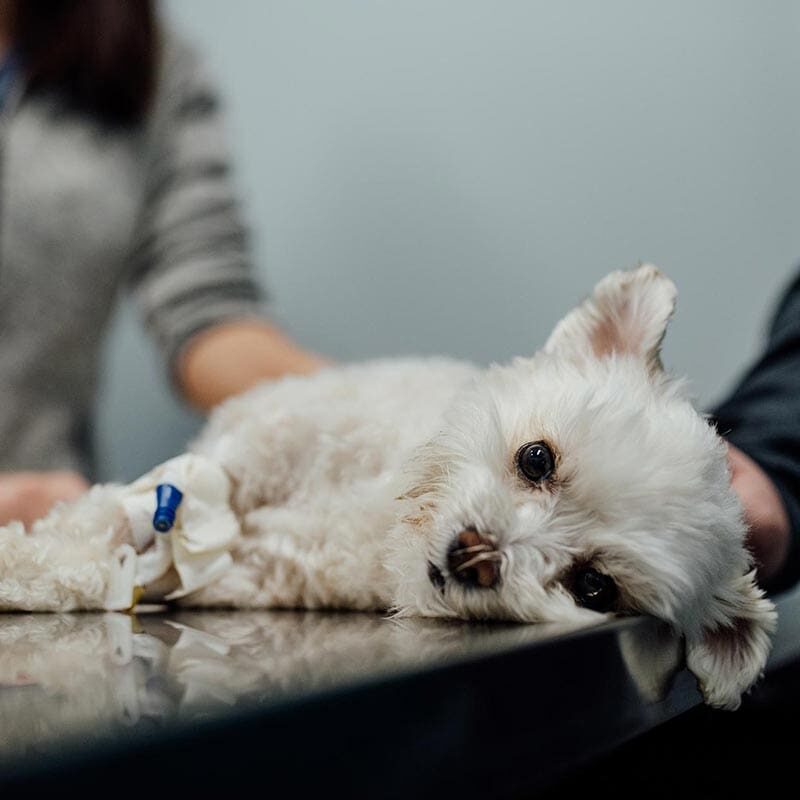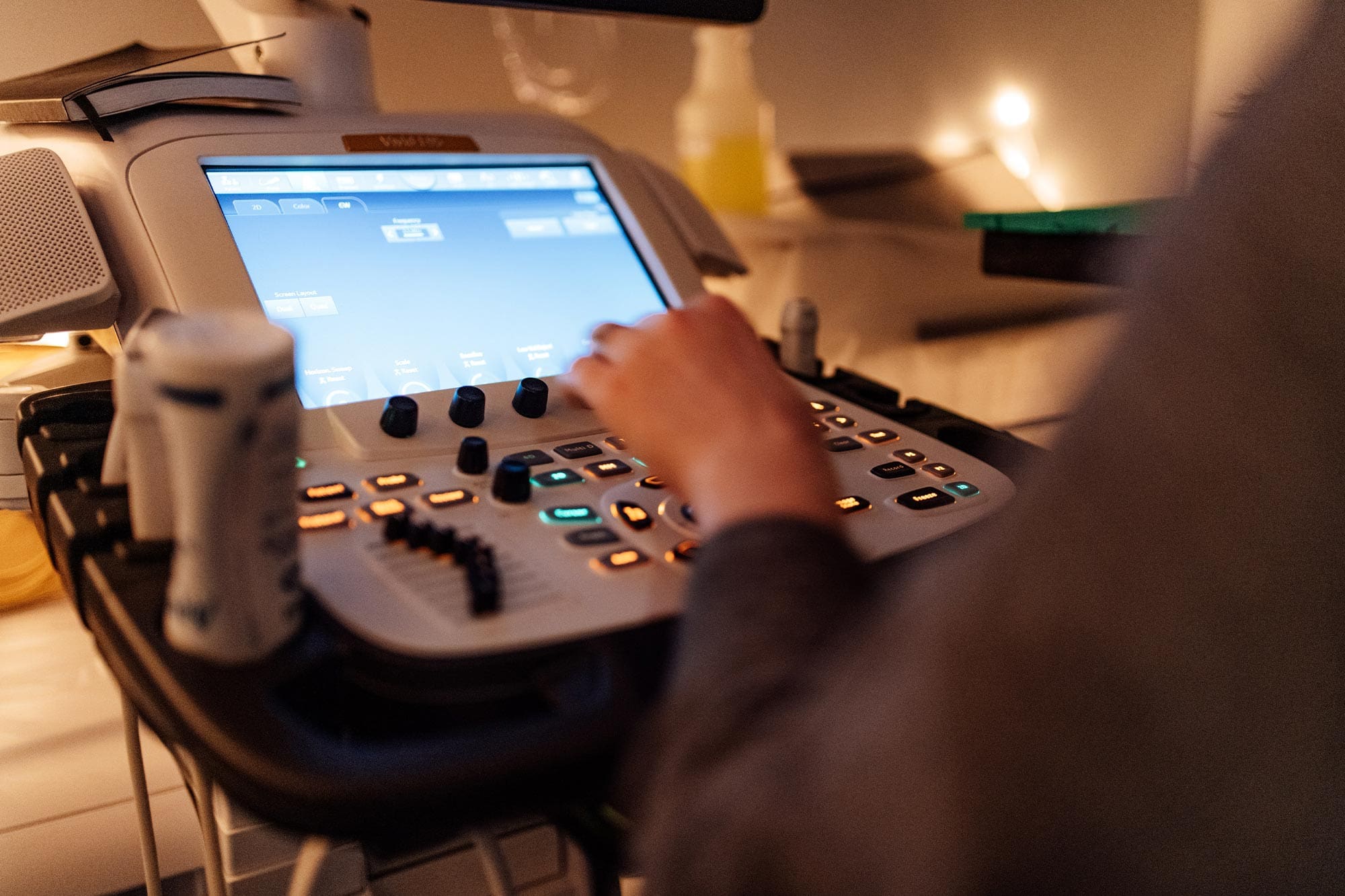Collapse episodes in dogs and cats can be caused by a multitude of reasons that include both cardiac and non-cardiac causes. Non-cardiac causes include neurologic disease (ex: seizures, liver shunts), systemic disease processes (ex: Addison’s disease, low blood sugar, anemia), electrolyte abnormalities, and several other disorders. Cardiac causes include arrhythmias (abnormally fast or slow heart rhythms), decreased output from structural heart disease (ex: degenerative valve disease, dilated cardiomyopathy, arrhythmogenic cardiomyopathy), congestive heart failure (CHF), and neurocardiogenic bradycardia (aka vasovagal syncope), a combined cardiac and neurologic disorder.
In many cases, a collapse episode only occurs once, while in other cases the episodes become frequent enough to affect a patient’s quality of life. The diagnostic workup often includes an echocardiogram, bloodwork, an ECG, and a Holter monitor (24-hour ECG). Often, the only definitive way to determine the cause of a collapse episode is to document the heart rhythm at the time of the episode with a Holter monitor. Since episodes are often random and intermittent, a definitive cause is sometimes never determined. Treatment in these latter cases is considered empirical (i.e. trial and error with medication).
Treatment


Treatment depends on the cause of the collapse episode. For collapse caused by underlying structural heart disease or CHF, medications including Vetmedin/pimobendan, ACE-inhibitors, and/or diuretics are generally prescribed. For episodes caused by neurocardiogenic bradycardia, treatment is generally aimed at reducing the inciting stimulus (i.e. avoiding the situation(s) that is thought to have caused the episode) since medical therapy is often unsuccessful. In those cases of neurocardiogenic bradycardia that experience frequent episodes of collapse, anticholinergic medications or implantation of a pacemaker are sometimes recommended. For episodes caused by arrhythmia, antiarrhythmic medication(s) and/or a pacemaker are recommended.
Prognosis
The prognosis for animals with syncope/collapse depends on the underlying cause. For those patients who experience a collapse episode as a result of ventricular arrhythmias, the risk for sudden cardiac death always remains even despite anti-arrhythmic therapy. For those patients who experience collapse/syncope due to neurocardiogenic bradycardia, the prognosis is generally fair/good. When structural heart disease is the suspected cause, the prognosis depends on the severity of the underlying disease.

